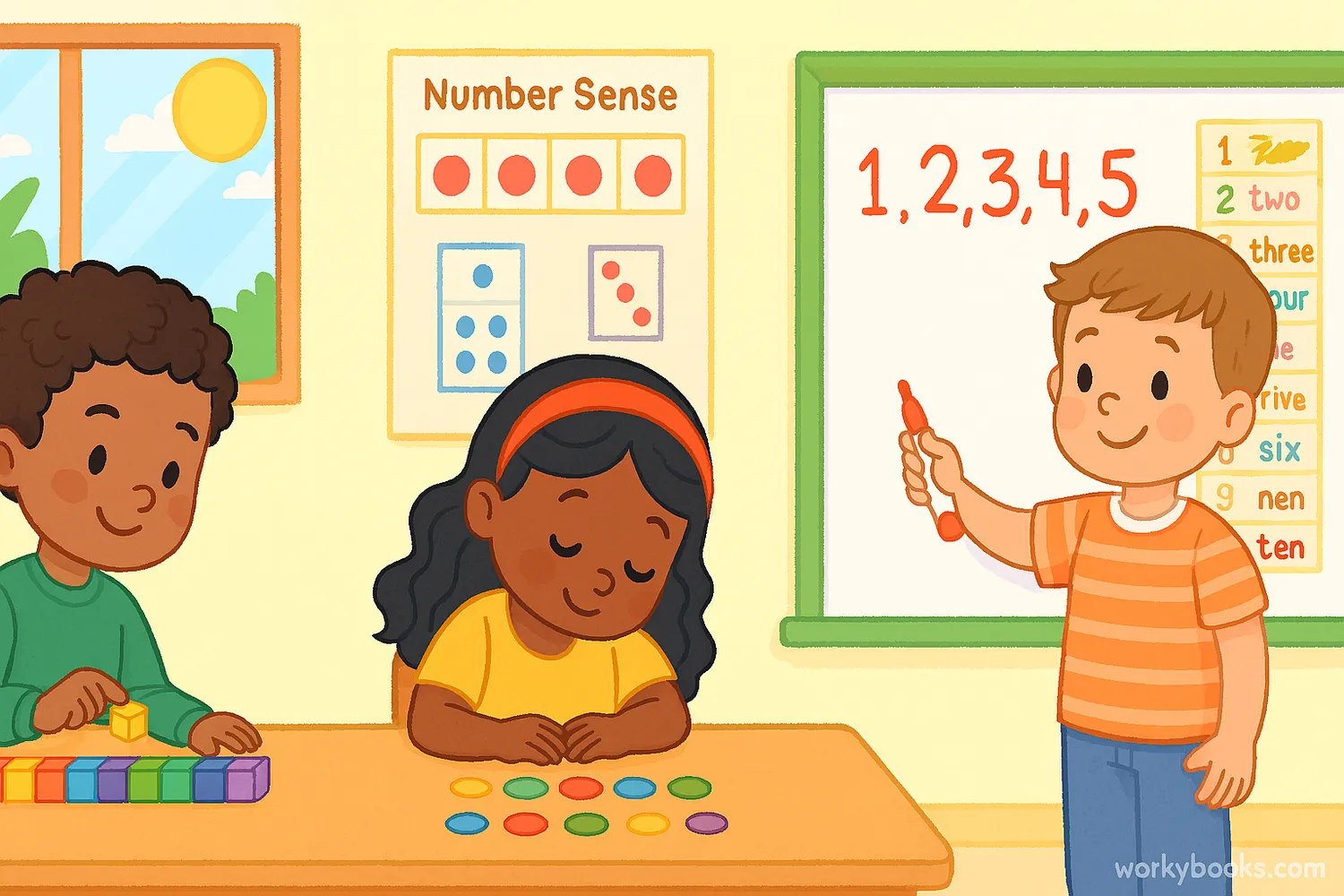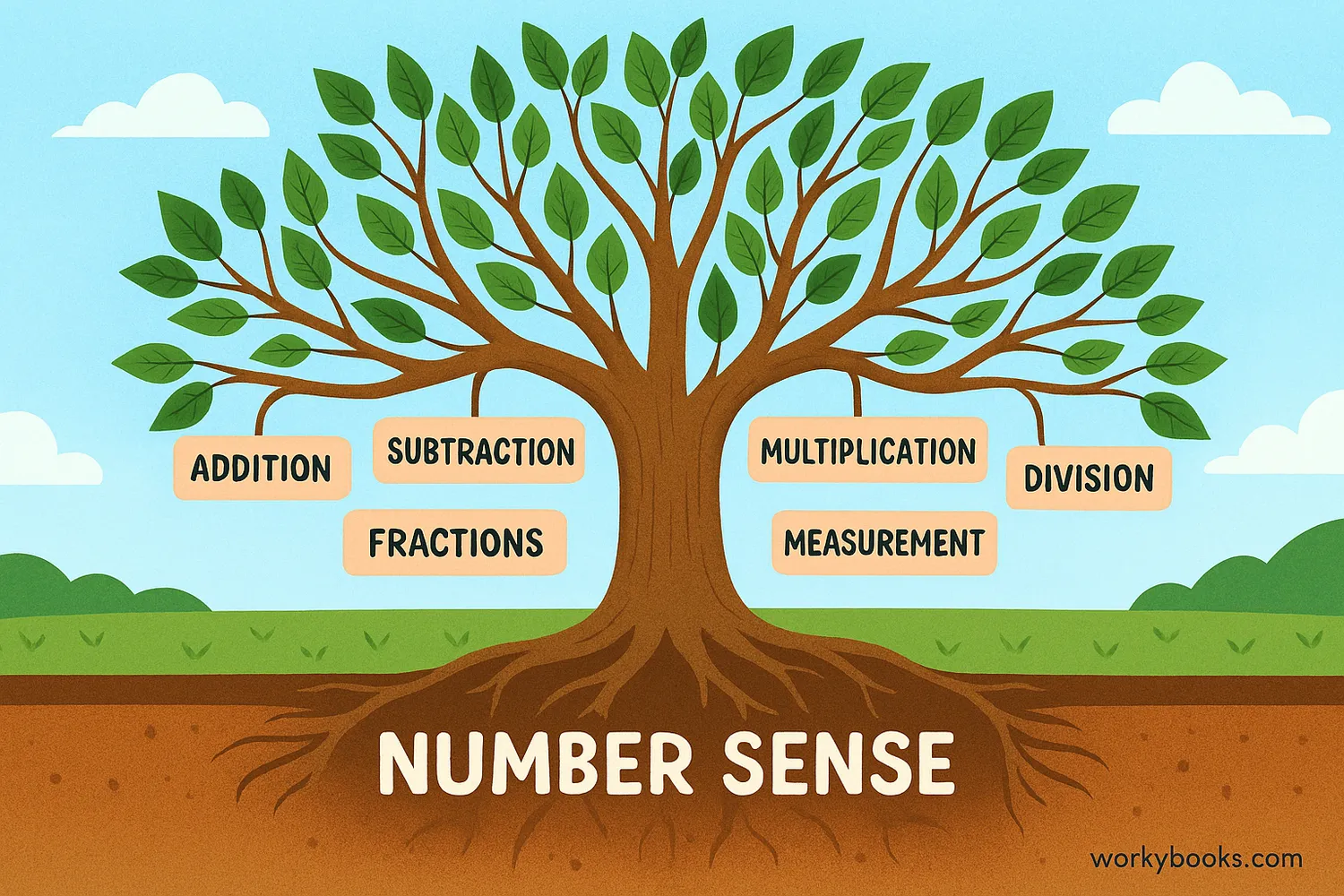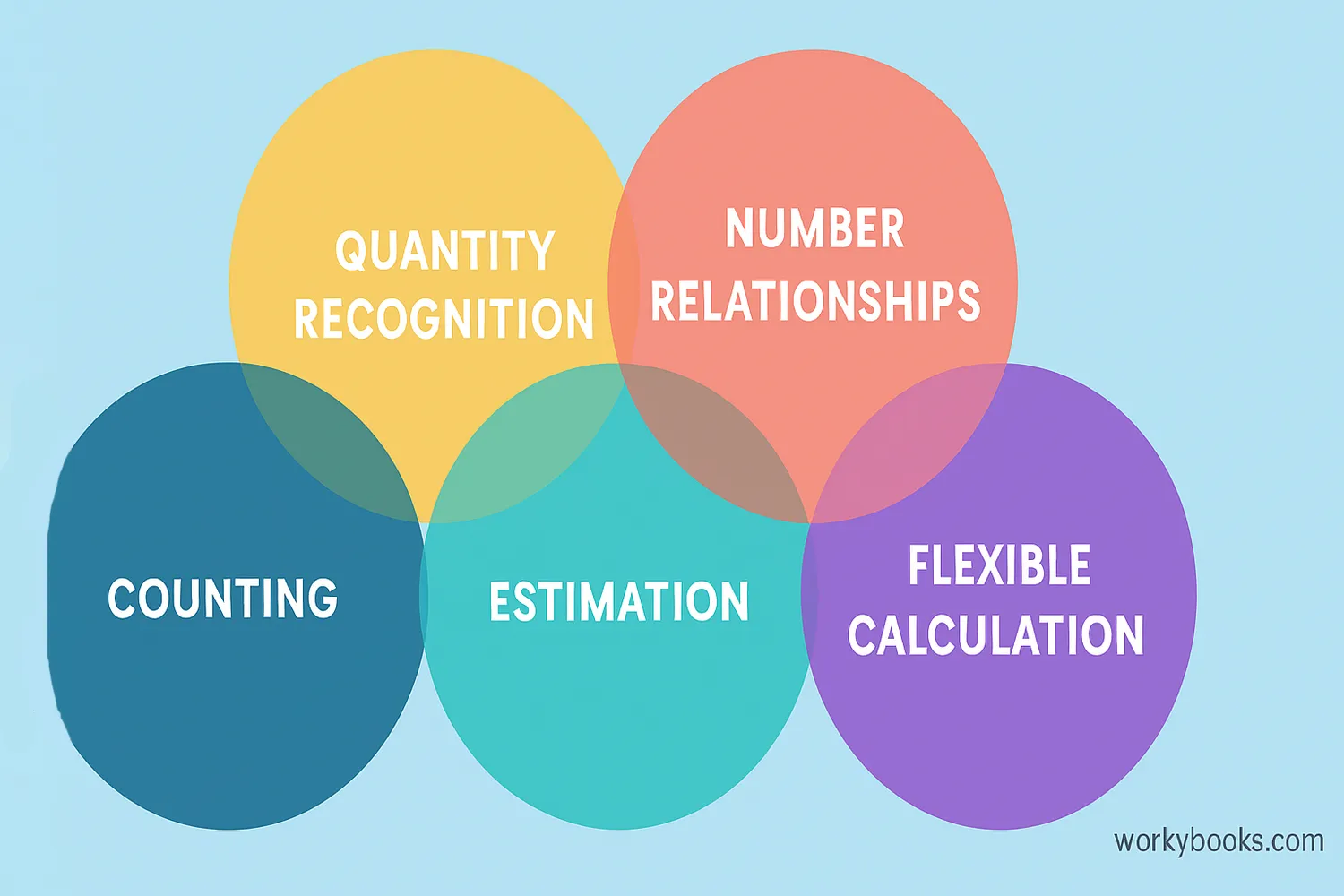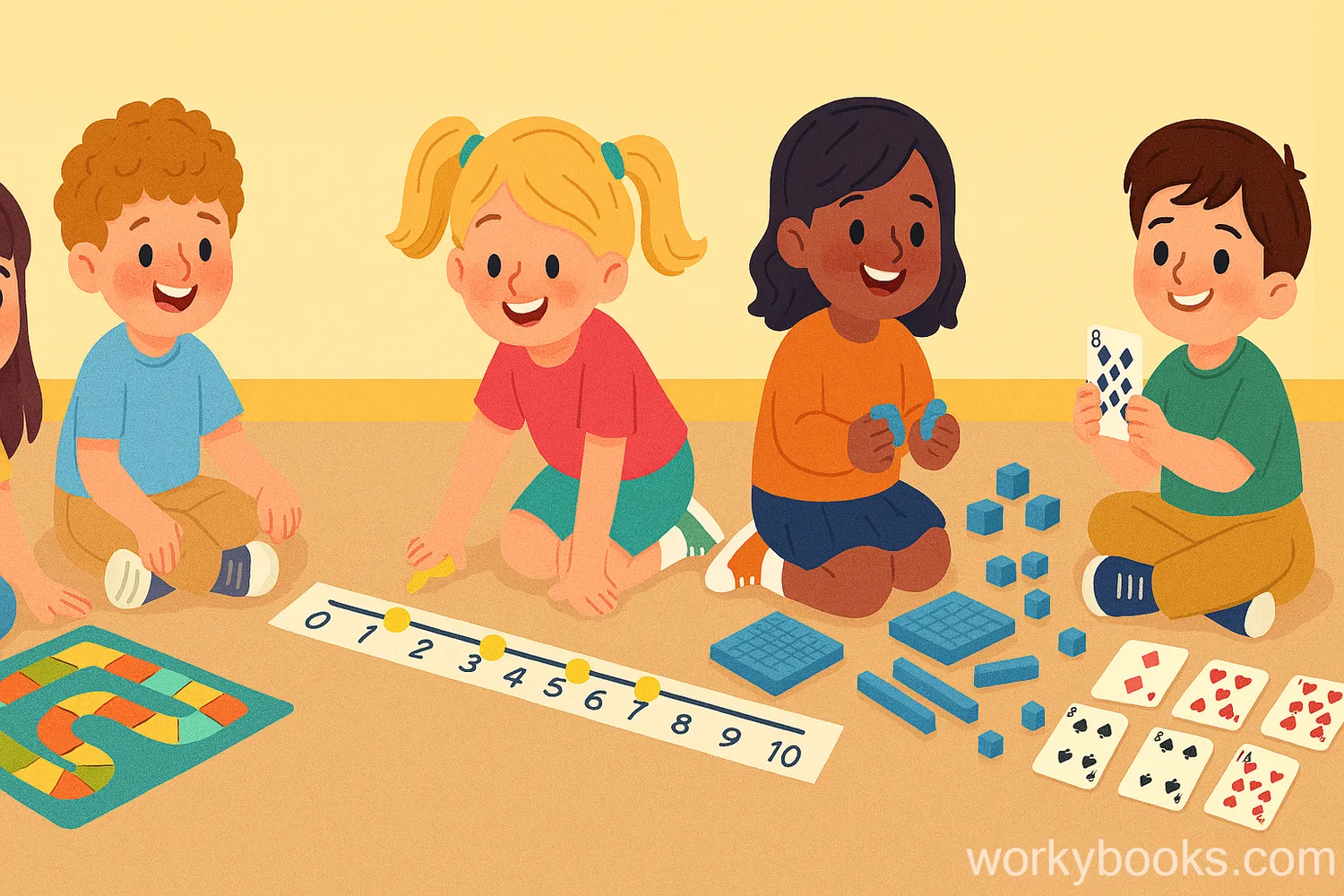Number Sense - Definition, Examples, Quiz, FAQ, Trivia
Understanding Numbers and Building Math Confidence
What is Number Sense?

Number sense is your understanding of numbers and how they work. It's like having a "feel" for numbers! When you have good number sense, you can:
• Understand what numbers mean and how big they are
• Compare numbers and know which is larger or smaller
• Make good estimates about quantities
• See relationships between numbers
• Work with numbers flexibly in your head
Teacher's Tip!
Number sense isn't about memorizing rules - it's about understanding how numbers work together. It's the foundation for all higher math skills!
Why Number Sense is Important

Developing strong number sense is one of the most important parts of math learning. Here's why it matters so much:
Builds Confidence
When you understand numbers, math feels less scary and more approachable
Foundation for Math
All higher math concepts build on basic number understanding
Real-World Skills
Helps with everyday tasks like telling time, handling money, and measuring
Problem Solving
Makes it easier to figure out which operations to use in word problems
Mental Math
Allows you to calculate answers in your head without always writing things down
Students with strong number sense are better at checking if their answers make sense. They can spot when a calculation might be wrong because the result doesn't "feel" right for the numbers involved.
Key Components of Number Sense

Number sense includes several important skills that work together. Here are the key components:
Counting
Knowing number names, counting forward and backward, and skip counting
Quantity Recognition
Instantly recognizing how many objects are in a small group without counting
Number Relationships
Understanding how numbers relate to each other (more/less, greater than/less than)
Estimation
Making reasonable guesses about quantities and measurements
Flexible Calculation
Using different strategies to work with numbers mentally
These skills develop over time through practice with numbers. Younger students might focus on counting and recognizing quantities, while older students work on more complex relationships between numbers.
Did You Know?
Most people can instantly recognize up to 5 objects without counting. This ability is called "subitizing" and it's an important early number sense skill!
Number Sense Activities & Games

The best way to develop number sense is through hands-on activities and games. Here are some effective ways to practice:
Counting Collections
Gather objects like buttons, beans, or toys and practice counting them in different ways
Number Talks
Discuss different ways to solve the same math problem without paper and pencil
Math Games
Play games that use dice, cards, or dominoes to practice number skills
Real Math
Use numbers in everyday situations like cooking, shopping, or telling time
Manipulatives
Use blocks, counters, or beads to physically represent numbers and operations
Regular practice with these activities helps build strong number sense. The key is to work with numbers in many different contexts and formats.
Number Sense Quiz
Test your number sense knowledge with this quiz! Answer all 5 questions to see how much you've learned.
Frequently Asked Questions
Here are answers to some common questions about number sense:
Math Facts About Number Sense
Discover some fascinating facts about numbers and how we understand them!
Animals Can Count!
Research shows that many animals have basic number sense. Lions can count the number of roars from rival prides, and some birds can recognize when the number of eggs in their nest has changed.
Special Brain Area
Scientists have found a specific area in the brain that's specialized for understanding numbers. This helps explain why number sense is a distinct skill from other types of thinking.
Different Number Systems
Not all cultures count the same way! Some languages have words only for "one," "two," and "many." This affects how people in those cultures develop number sense.
Zero Is New
The concept of zero as a number is relatively new in human history. Many ancient number systems didn't have a symbol for zero, which made advanced math much more difficult!





